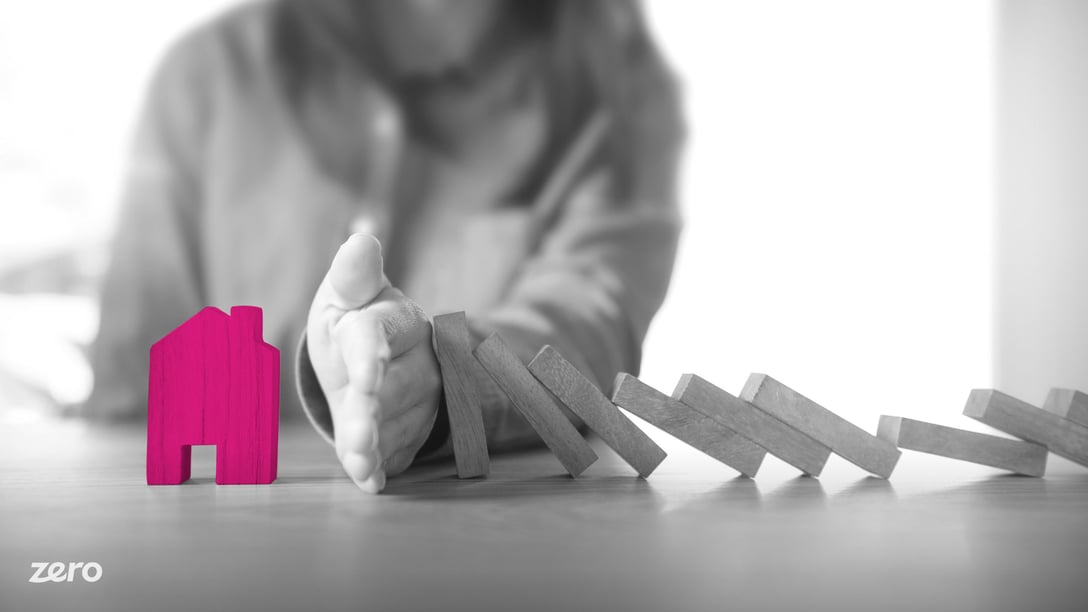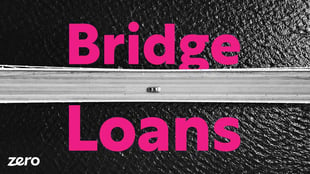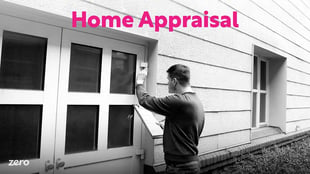Ultimate Homeowners Insurance 2022 Guide: Mortgages 101

When you buy a house and start making mortgage payments, your payment consists of four different components, known by the acronym PITI, which refers to Principal, Interest, Taxes, and Insurance. The insurance component can include PMI (private mortgage insurance) and homeowners insurance. Each of these concepts would take an entire article to explain, but we’ll be focusing on homeowners insurance in this blog post. If you’ve bought a house or are preparing to buy one, this article will provide a thorough overview of what homeowners insurance is, why you have to have it, what it covers, and ways to bring the costs associated with it down.
What’s the Definition of Homeowners Insurance?
What is homeowners insurance, and why is it necessary that you pay for it? Essentially, homeowners insurance protects you if your home or possessions in the house are put in jeopardy by a natural disaster, robbery, or some other unexpected event. In addition, homeowners insurance protects lenders by allowing you to continue to make mortgage payments in the event of a crisis and protecting the property for which they have a financial interest in until the mortgage is satisfied. In most cases, proof of homeowners insurance is a mandatory requirement from mortgage companies.
How Homeowners Insurance Works
Homeowners insurance includes property insurance, which protects your actual home and property in the event of a fire, theft, or other unexpected events, but it also includes liability insurance. Liability insurance protects you legally if someone who’s not on your policy is affected by your property or while on your land. Examples of this could include someone falling and getting hurt on your property or a tree planted on your land falling on someone else’s house—though the liability in both of these examples would depend on the exact details of the event and is determined on a case by case analysis. Because home insurance includes two types of insurance bundled together, it’s known as multi-line.
What Are Different Types of Homeowner’s Insurance?
Not all homeowners insurance policies look the same. Depending on your situation and needs, your policy could look completely different from someone else’s. Here, we’ll go over several different types you might encounter and what they cover.
- Basic Homeowners Policy, HO-1: A basic homeowners policy is, as it sounds, one of the simpler policies, covering a total of 10 events, including fire, lightning, hail, theft, and others.
- Broad Form Policy, HO-2:A broad form option covers you against additional events beyond what’s included with the basic policy. These could include things like electrical current and steam discharge damage.
- Special Form Policy, HO-3:>HO-3 policies go beyond basic and broad, covering 16 total incidents.
- Tenant’s Form, HO-4:HO-4 policies are also called renter’s insurance and apply to people who are tenants in a dwelling place as opposed to owners.
- Comprehensive Form, HO-5:For those who need additional coverage beyond the HO-3, the HO-5 offers this.Typically, HO-5 policies cover high-value homes, with>a market value of $750,000 or more and provides the most superior protection.
- Condominium Unit Owners Form, HO-6: The HO-6 insurance type is specifically geared toward people who live in or own condos. It’s also known as “walls-in” because of the areas that it protects which is within your specific unit and does not cover the entire building.
- Mobile Home Form, HO-7: You may have noticed that some types of residences and living situations require specific coverage. The HO-7 covers you if you live in a mobile home.
- Older Home Form, HO-8: Old homes have unique needs and thus have a dedicated insurance type.
- Dwelling Fire Form: In some cases, such as with vacation homes, you may want less coverage. The dwelling fire form meets this need, only offering coverage for the actual residence and not providing liability coverage or protection for the contents of the space.
What Does Homeowners Insurance Cover?
Homeowners insurance is just as much a protection for you as it is for your lender, so it’s natural to want to know what exactly it covers. While the exact coverage will depend on your policy, there are some common things that you can expect to see home insurance guarding you against.
First, homeowners insurance, depending on the policy, may protect your house, inside and out, from disasters like fires and smoke damage, explosions, falling trees, aircraft damage, and even destruction from a burst pipe. If you neglect the upkeep of your home and experience damage due to that, homeowners insurance may find you at fault and this can affect your coverage. Homeowners insurance also generally covers not just you but the property in your house. This can be comforting if you worry about the possibility of a burglary. Depending on your policy, homeowners insurance may also cover damages for injury to people on your property in the event of an accident. Finally, if a disaster happens to displace you temporarily, your insurance might also cover day-to-day expenses, including lodging and food, within reason.
Homeowners Insurance Breakdown
We’ve discussed what home insurance covers in brief, but let’s break it down even further so you can understand exactly what to expect.
Section I — Property Coverage
The first section in your policy is all about you—your house, your possessions, and your well being when disaster strikes.
Section A — Dwelling:
Dwelling refers to the actual physical makeup of your home. Insurance companies will want to consider how expensive it would be to repair or entirely rebuild your residence in the event of a disaster.
Section B — Personal Property:
The items in your house can carry substantial value, which is why many homeowners insurance policies cover them as well. For people with especially high-value items, such as jewelry or rare collector items that they own and treasure, extra coverage might be a good idea.
Section C — Loss of Use:
As we discussed before, some disasters can drive you out of your home for an extended period. Luckily you won’t have to pay for lodging costs during this time if you have the right coverage.
Section II — Liability
Many potential accidents could happen on your property or as a result of something on your property: your pet could harm someone, a tree branch could break off and damage your neighbor’s car, and the list goes on. The liability section exists to safeguard you from the financial burden of any repairs or payments that arise because of such events.
Our Mortgage Learning Center features blogs on a wide range of mortgage and refinancing topics.
How to Purchase Homeowners Insurance
When you’re ready to buy homeowners insurance, do your research. Determine what type of insurance you need, your home-rebuilding price, the items in your home that need to be insured and how you want them to be covered, and more. Consult with an insurance agent or a realtor as needed. If you live in a place that’s likely to flood or have earthquakes, you may want to ask about buying additional insurance just for this eventuality.
Before binding yourself on a policy, be sure to compare prices from several different companies to ensure you’re getting the best homeowners insurance premiums and coverage.
How Are Homeowners Insurance Rates Determined?
Your situation isn’t the same as your neighbor’s, so you likely won’t pay the same as they do on their homeowners insurance. If you are wondering, “How much is homeowners insurance going to cost me?” know that insurance businesses consider several details when calculating how much to charge you. Some factors have to do with the home itself, while others take into account your lifestyle choices. Here are some of the main factors that may go into how much your homeowners insurance premium rates:
- If your home is made of brick, it might mean you pay a lower premium than you would for a wood home.
- If your home is older, your premium may be higher than it would be for a newer home.
- If your neighborhood has many claims, this could also affect your premium.
- If you own unique pets or notoriously unpredictable breeds of dogs, your premiums could be affected, or insurance could be denied altogether by some companies.
Summary: Tips to Cut Homeowners Insurance
Most people want to cut costs wherever they can, especially when you’re dealing with the already pricy business of buying a house. Some ways that you can keep your premiums as low as possible without skimping on the quality of your insurance include:
- Opting for a higher deductible
- Bundling your home insurance with other kinds of insurance from the same company
- Paying off your home early
- Acting on common sense and installing smoke detectors and a burglar alarm, both of which keep you safer and could get you a discount on your premiums
Overall, while homeowners insurance may be a requirement, it’s also a smart thing to purchase to protect you and your property from unexpected events that can cause damage. If you’re looking for the right homeowners insurance company to safeguard your next real estate investment, an insurance agent can help you explore policies and customize them for your needs.
Apply for a Mortgage Today!
This page last updated: December 6, 2022
Read more on this topic below.

If you have gone through the pre-approval process but need to take a deeper dive into how much house to buy,...

The vast majority of mortgage loans require you to put down a certain percentage of the selling price upfront....

Whether you’re a first-time buyer or you’ve purchased a home before, you’ve likely heard of a homeowner’s association....

People buy their homes for a number of reasons. Affordability, stability, and comfort are some of the most...

There’s a lot of expenses to keep in mind when you’re thinking about buying a home. Between the price of the home, property taxes, your mortgage...

Conventional loans are mortgages offered by private lenders, banks, and institutions that are not backed by the government. Unlike FHA, USDA,...

Some homebuyers refuse to purchase a property if it is part of a property owner association. On the...

Research indicates that 58% of homeowners in HOA communities and single-family homes pay an average monthly fee...

Private mortgage insurance is something millions of homeowners pay for each year. However, this type of insurance does not protect

When you first set out to buy a home, it can feel like you’re taking an exam you forgot to study for. You have to make quick...

When looking to refinance or buy a house, the pre-qualified vs pre-approved mortgage debate can be...

A mortgage is often the largest monthly expense homeowners pay. The thought of reducing the amount...

A home doesn’t just fall into foreclosure status. There are stages and processes that take place behind the scenes before...

It’s likely that your mortgage loan will be the largest loan you have during your lifetime. Mortgages are not a one size...

Refinancing your home can save you thousands of dollars per year! When you extrapolate that savings over...

For many people, owning a home is part of the American dream. To make this dream a reality, most people will take out a...

Whenever you’re looking to buy a house, you’ll quickly realize there are a lot of fees associated with obtaining a mortgage....

A bridge loan is a short-term loan a borrower may use while a more long-term financing contract is finalized. Bridge...

A loan estimate is crucial to obtain when looking for a loan. This estimate not only gives you the details of a mortgage but also compares offers...

There are many moving parts and various people you’ll deal with throughout the homebuying process....

If you’re looking to buy a house, and do not have a mountain of cash saved up, you’ll need to consider getting a mortgage to help you finance this...

If you find a property that you’re highly interested in buying but are concerned that the seller might choose...

Buying a home? You’ll likely need to get it appraised before you receive the clear to close. If you’re wondering...

If you’re an active service member, a veteran, or the surviving spouse of a veteran, and you want to ...

Innovative and cost-effective home improvement ideas are all over the internet, especially when it comes to...

There’s no doubt, COVID-19 changed the world in countless ways and took us all by surprise. From an...

Whenever you are borrowing money, whether it’s for a new mortgage, a refinance, credit card, or car loan, you’ll hear...

If you’re new to buying a home, you probably have quickly realized the overwhelming amount of options there...

If you’ve already gone through the lengthy process of writing offers, securing financing, and arranging inspections for your...

One of the most important steps to buying a home is deciding on a mortgage loan and deciding on a loan involves settling on a good...

First time home buyers are often surprised when they learn about all of the expenses that are associated with ...

Purchasing real estate is not as simple as finding the right home, submitting an offer, and signing the closing paperwork; many...
